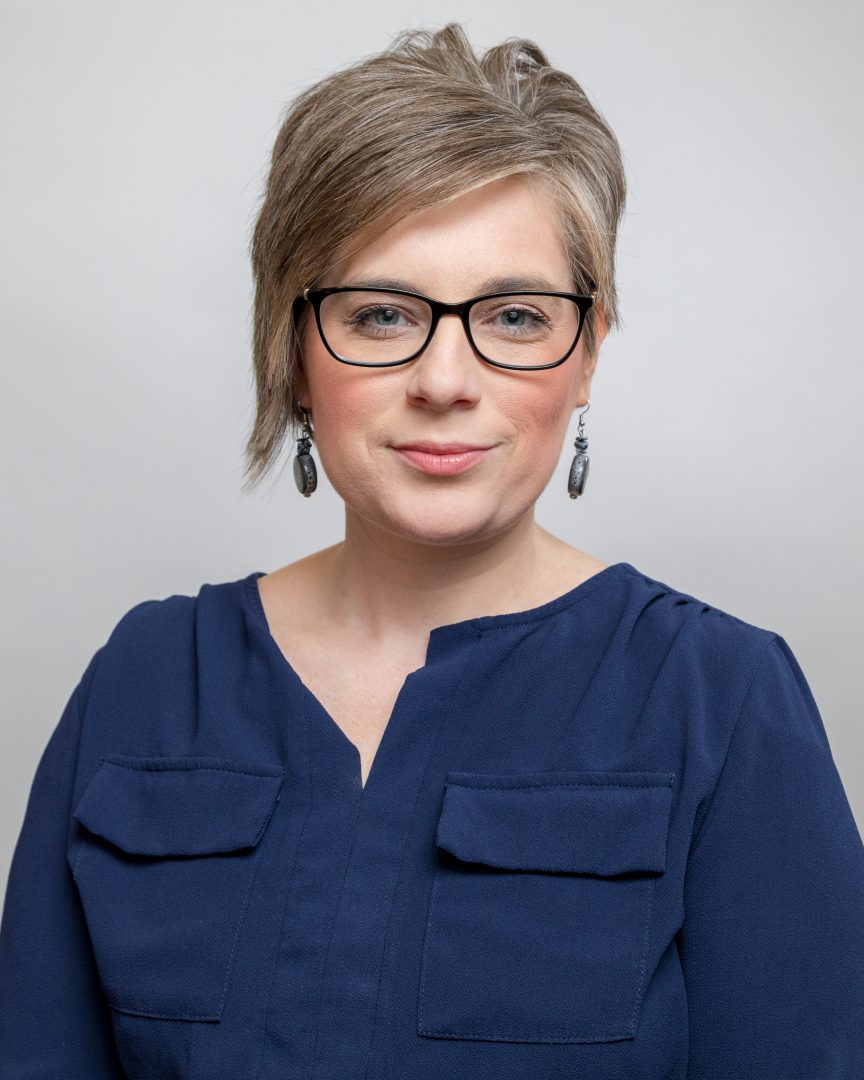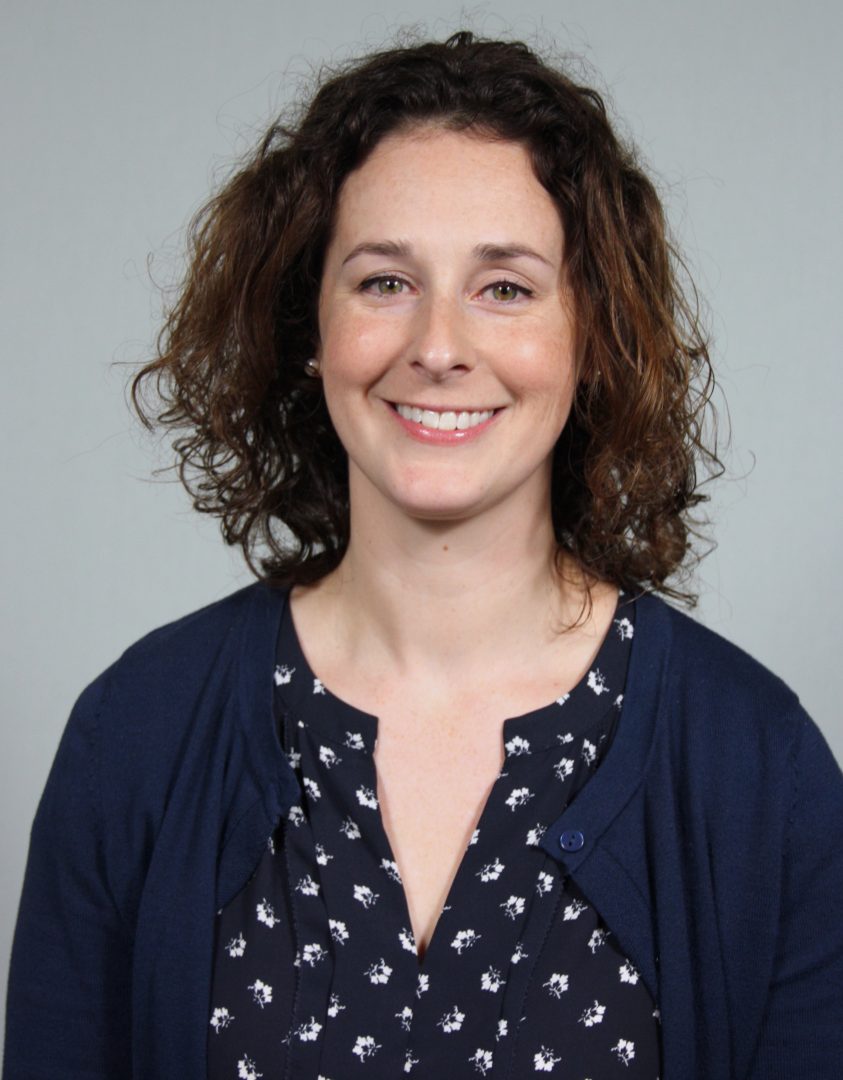Central Region
Missouri
Great Lakes Region
Indiana
Cascades Region
Washington
Cy-Hawk Region
Iowa
Pacific Region
Washington

About Us
Mission: University Health is an academic medical center providing accessible, state-of-the-art quality healthcare to our community regardless of the ability to pay. University Health delivers “Academic Medicine for All.”
University Health is an academic medical center serving individuals with a vast range of cultural and socioeconomic backgrounds, regardless of their ability to pay. The University Health System includes the largest behavioral health program in the area, two acute care hospitals, and multiple primary care clinics.
University Health Behavioral Health is a leader in the treatment of mental health and provides a comprehensive array of mental health services. As an academic medical center, University Health is committed to training the next leaders in healthcare. University Health Behavioral Health provides training opportunities for psychology practicum students, doctoral interns, and post-doctoral residents, as well as trainees in disciplines of psychiatry, social work, counseling, and others.
University Health is known for having the Brightest Minds and Biggest Hearts in Kansas City. This is where academic experts and compassionate care come together.
Training Opportunities
192523 – University Health – Integrated Behavioral Health Track
Positions: 1
Setting
Hospital
Services Provided by Interns
The intern will provide care at the University Health Lakewood Medical Center in the Department of Community and Family Medicine clinics including the Family Medicine Center, Maternal Care Clinic, Labor and Delivery Unit, and Inpatient Medicine services, all located within the hospital. The intern may work directly with a postdoctoral psychology fellow and multiple doctoral practicum students and alongside Family Medicine Resident and Attending Physicians, medical social workers, UMKC Medical Students, nursing and medical assistance staff, clinical pharmacy, and various members of other disciplines.
The intern will also participate in group supervision through the interdisciplinary treatment teams on the inpatient units along with an additional hour with a third licensed psychologist at one of the outpatient settings.
Schedule Considerations
The intern will have clinical duties Monday – Friday 8:00 to 5:00 with the exception of Tuesday afternoons in which interns will join the Family Medicine Residency didactics.
192525 – University Health – Child/Adolescent Outpatient Track
Positions: 1
Setting
Outpatient
Services Provided by Interns
The Child/Adolescent intern in the Outpatient Track will be located at the outpatient behavioral health clinic in Lee’s Summit, MO, which is a suburb of the Kansas City metro area. The intern will provide individual and group therapy alongside a multidisciplinary team. There is also a potential opportunity for secondary supervision of a practicum student. Additionally, the intern will provide a range of clinical intervention services and gain experience with treatment planning, crisis intervention, outcome measurement, and consultation with other professionals. Outpatient clinics routinely use standardized outcome measures (deleted: some outpatient testing opportunities may be available).
The Child & Adolescent team is a cohesive unit comprised of psychologists, qualified mental health providers (Masters-level social work, counseling), psychiatrists, and psychiatry residents. Current modalities include but are not limited to: Cognitive Behavioral Therapy (CBT), Dialectical Behavior Therapy (DBT)-based skills, Exposure and Response Prevention (ERP) techniques, Trauma-Focused Cognitive Behavioral Therapy (TF-CBT), and Parent Management Training (PMT). Common presenting concerns treated include: Anxiety, Depression, PTSD, OCD, behavioral difficulties, ADHD, DMDD, ASD, grief & loss issues, and adjustment disorders.
Interns will also participate in group supervision with a third licensed psychologist at one of the outpatient settings.
Schedule Considerations
Interns typically work a Monday – Friday schedule from 8:00 to 5:00 pm or 8:00 to 4:30 pm. No weekend work, on-call, or holiday work is required.
192514 – University Health – Behavioral Health Acute Care Track
Positions: 1
Setting
Inpatient
Services Provided by Interns
University Health Behavioral Health Acute Care is an adult, inpatient psychiatric unit located in downtown Kansas City, and housed inside the building for the Center for Behavioral Medicine. The inpatient units provide short-term acute care and stabilization for adults by offering a multidisciplinary treatment team approach.
The intern will provide individual therapy, group therapy, and testing alongside a multidisciplinary team. Additionally, interns will provide a range of clinical intervention services and gain experience with treatment planning, crisis intervention, outcome measurement, and consultation with other professionals.
The intern will also participate in group supervision through the interdisciplinary treatment teams on the inpatient units along with an additional hour with a third licensed psychologist at one of the outpatient settings.
Schedule Considerations
Interns typically work a Monday–Friday schedule from 8:00 to 4:30 pm. No weekend work, on-call, or holiday work is required.
192519 – University Health – Adult Outpatient
Positions: 1
Setting
Outpatient
Services Provided by Interns
Schedule Considerations
Interns typically work a Monday – Friday schedule from 8:00 to 4:30 pm. No weekend work, on-call, or holiday work is required.
192522 – University Health – Women’s Health Track
Positions: 1
Setting
Outpatient
Services Provided by Interns
The Women’s Health Track intern will be located in an outpatient behavioral health clinic. The intern will provide mental health services for women and focus on the knowledge and implementation of the APA Specialty Guidelines for Psychological Practice with Girls and Women. The intern will provide individual therapy, group therapy when available, and secondary supervision of practicum students alongside a multidisciplinary team. Additionally, interns will provide a range of clinical intervention services and gain experience with treatment planning, crisis intervention, outcome measurement, and consultation with other professionals. Outpatient clinics routinely use standardized outcome measures and some outpatient psychological testing opportunities may be available.
The Adult Outpatient team is a cohesive unit comprised of psychologists, qualified mental health providers (Masters-level social work, counseling), psychiatrists, and psychiatry residents. At UHBH, we pride ourselves on our ability to provide a high level of clinical care, and to implement evidence-based practices whenever possible. Current modalities include but are not limited to: Cognitive Behavioral Therapy (CBT), Dialectical Behavior Therapy (DBT)-based skills, Exposure and Response Prevention (ERP) techniques, and Cognitive Processing Therapy (CPT).
Common presenting concerns treated include: Maternal Mental health issues, Anxiety, Depression, PTSD, OCD, grief & loss issues, and Adjustment Disorders.
The intern will also participate in group supervision with a licensed psychologist at one of the outpatient settings.
Schedule Considerations
Interns typically work a Monday – Friday schedule from 8:00 to 5:00 pm. No weekend work, on-call, or holiday work is required.
Didactics
Didactic trainings are typically held every other Friday from 8:00 am to 12:00 pm. Two times per year interns will attend an all-day training from 8:30 am - 4:30 pm which will allow in-person socialization and interaction. Interns spend a minimum of eight hours each month in seminars and workshops with required learning objectives and a reading list covering relevant journal articles, etc. Please email applicant@psychologyinterns.org for access to our current training manual which includes the full didactic training policy (policies subject to change).
Supervision
All interns receive at least four hours of supervision per week. The requirement includes at least two hours with a licensed psychologist in individual, face-to-face supervision. The other two hours include secondary supervision with a licensed psychologist and/or ancillary supervisor in a group or individual setting. Please email applicant@psychologyinterns.org for access to our current training manual which includes the full supervision policy (policies subject to change).
Clerical and Technical Support
Office locations have support staff on-site, and a 24-hour support line for IT.
Training Materials and Equipment
Interns have a dedicated office space on their outpatient days to see patients and complete medical record entries. All interns have access to programs such as Microsoft Office, Internet browsers, an electronic records systems provided by Cerner (PowerChart / eCare), online test scoring, and other online training tools. The shared network G: drive can be accessed from all University Health computers and contains group curriculum materials, individual interventions, documentation templates, multicultural articles, and other educational resources on various relevant topics. Each intern also has a personal H: Drive they can use for online storage.
Schedule
Each intern’s schedule may vary according to special interests and needs of the training site.
Example Schedule
| Time of Day | Monday | Tuesday | Wednesday | Thursday | Friday |
|---|---|---|---|---|---|
|
AM
|
Direct patient care
|
1 hour of Individual supervision followed by direct patient care
|
1 hour of Individual supervision followed by direct patient care
|
1 hour of Individual supervision provided to a pre-doctoral student followed by direct patient care |
NPTC trainings/didactics or Journal Club
|
|
PM
|
Direct patient care and 1 hour of Group supervision
|
Direct patient care
|
Direct patient care
|
Direct patient care
|
Direct patient care/ other intern interests or opportunities |
Site Training Director

Ashlee Jones, Psy.D.
Dr. Jones works primarily with children, adolescents, and families as an outpatient psychologist at University Health in Kansas City, Missouri where she provides evidence-based treatments. She is a licensed psychologist and health service provider in the state of Missouri. She has extensive experience providing individual therapy, family therapy and psychological assessment. She has participated in ECHO Autism, ECHO Autism Center Engagement and ECHO Rubi. She has extensive experience providing didactic presentations on Autism, therapy with children, and psychological testing. She holds a faculty appointment in the UMKC Department of Psychiatry and is involved in training third- and fourth-year psychiatry residents. Furthermore, Dr. Jones has provided supervision of masters-level and doctoral-level interns. She is a member of the American Psychological Association, APA Division 53 (Society of Clinical Child and Adolescent Psychology) and APA Division 12 (Society of Clinical Psychology).
Supervisors
While we won’t know your exact supervisor assignments until the internship starts, these are examples of some of the individuals you may work with over the course of your year at the site.
 Eric Shult, Ph.D.
Eric Shult, Ph.D.
Behavioral Health Acute Care Track Supervisor
Dr. Shult received his doctorate in counseling psychology at the University of Memphis and his undergraduate degree from Humboldt State University. He is a licensed psychologist in the state of Missouri. After completing his postdoctoral residency at Truman Medical Centers in 2013, Dr. Shult became a psychologist at University Health Behavioral Health Acute Care. He has extensive experience treating chronic mood, anxiety, and personality issues in both outpatient and inpatient settings. He has extensive experience providing didactic presentations on multiculturalism and suicide prevention and has served as an adjunct instructor at Avila University in Kansas City, Missouri. Furthermore, Dr. Shult has extensive experience training and providing supervision of masters-level and doctoral-level interns.
 Jennifer Keller, Psy.D.
Jennifer Keller, Psy.D.
Dr. Keller currently serves as a senior director of behavioral health as well as the section chief for psychology at University Health. As a licensed psychologist, Dr. Keller has been with University Health since 2012 and uniquely serves in a clinical and administrative role. She holds an academic appointment as an assistant professor through the Department of Psychiatry at UMKC School of Medicine and has taught as an adjunct professor at various academic institutions over her career. Dr. Keller is involved in various professional and community organizations. She serves on the board of Newhouse, a domestic violence shelter in KC. She is also on the Missouri State Committee of Psychologists.
 Abbey Gripka, Ph.D.
Abbey Gripka, Ph.D.
Women’s Health Track and Adult Outpatient Track Supervisor
Dr. Gripka is a licensed psychologist in both Missouri and Kansas. She serves as the primary supervising psychologist for the Adult Outpatient and Women’s Health internship tracks and also coordinates the psychology practicum program at University Health Behavioral Health (UHBH). Dr. Gripka enjoys supervising and mentoring across a range of training levels and disciplines, including practicum students, doctoral interns, post-doctoral residents, provisionally licensed counselors, and psychiatry residents. She currently supervises and provides outpatient individual and group psychotherapy at both the Crossroads and Lakewood outpatient clinics, specializing in trauma-informed, evidence-based interventions for a range of mental health conditions.
She earned her doctorate in Counseling Psychology from The University of Kansas and received specialized training in the assessment and treatment of PTSD and trauma-related disorders through internship and post-doctoral residency. Dr. Gripka is passionate about equipping clinicians with tools to prevent burnout and secondary traumatization, especially when working with complex patient populations. For the past several years, Dr. Gripka has been actively involved in clinical research focused on developing and implementing an experiential Cognitive Behavioral Therapy (CBT) course, which includes embedded, live supervision for psychiatry residents.
Dr. Gripka is dedicated to addressing the full spectrum of mental health concerns affecting women across the lifespan and within diverse cultural contexts. Motivated by a commitment to improving mental health outcomes for birthing people, she is currently pursuing certification in perinatal mental health. Her prior clinical training and experience also include work with military veterans, collegiate student athletes, and collaboration with athletic departments.
 Jennifer Osborne, Ph.D.
Jennifer Osborne, Ph.D.
Group Supervisor
Dr. Osborne is a Missouri licensed psychologist at University Health – Crossroads Counseling in Kansas City, MO. She is a Clinical Psychologist Supervisor in the adult clinic and has been with University Health since 2011. Dr. Osborne completed her doctoral training in the Counseling Psychology program at Fordham University in New York. She has extensive training and expertise in assessment and treatment of PTSD and trauma-related concerns. Dr. Osborne currently provides adult outpatient psychotherapy for treatment of a variety of mental health diagnoses. She has experience supervising and training masters and doctoral-level interns and supervises licensed staff in the department. She holds a faculty appointment in the UMKC Department of Psychiatry and is involved in training third- and fourth-year psychiatry residents. She serves on several behavioral health and corporate committees and is co-chair of the Zero Suicide committee. Dr. Osborne currently serves as primary supervisor overseeing group supervision for our doctoral psychology interns.
 Carlie Nikel, Psy.D.
Carlie Nikel, Psy.D.
Integrated Behavioral Health Track Supervisor
Dr. Carlie Nikel is a Missouri and Kansas licensed psychologist at University Health Lakewood Medical Center where she provides integrated behavioral health services. She is the primary supervising psychologist for the integrated behavioral health internship slot. Additionally, Dr. Nikel supervises doctoral psychology practicum students and facilitates the postdoctoral fellowship in integrated behavioral health. In addition to her clinical and supervisory roles, Dr. Nikel is an Associate Program Director and Director of Behavioral Science at the University of Missouri – Kansas City (UMKC) Family Medicine Residency. She is an Assistant Professor in the Department of Community and Family Medicine at UMKC School of Medicine. With these roles, Dr. Nikel engages in residency program development, education of medical student, resident physicians, and faculty physicians on behavioral science, and facilitates the professional wellbeing programming for the department. Dr. Nikel serves on professional wellbeing committees at a department, hospital, university, and national level.
 Errin Price, Psy.D.
Errin Price, Psy.D.
Child/Adolescent Outpatient Track Supervisor
Dr. Price is a Missouri licensed psychologist at University Health – Lakewood Counseling in Lee’s Summit, MO. She primarily provides outpatient therapy services to children and adolescents and is one of the supervisors for the child outpatient internship rotation. She completed her doctoral training at University of La Verne in clinical-community psychology and has lived in several different states to complete doctoral and postdoctoral training in child and adolescent psychology. Dr. Price has extensive training and experiences in the treatment of anxiety, depression, trauma, attention-deficit/hyperactivity, and mood-related difficulties. Additionally, through the University of Missouri-Kansas City, she provides behavioral health support to the Athletics Department and has an academic appointment with the School of Medicine Department of Psychiatry.
Example treatment modalities (as listed by APPIC):
|
Assessment
|
Experience (21% to 30%) |
|
Individual Intervention
|
Major Area (50%+) |
|
Couples Intervention
|
N/A |
|
Family Intervention
|
Emphasis (31% to 49%) |
|
Group Intervention
|
Experience (21% to 30%) |
|
Community Intervention
|
N/A |
|
Consultation/Liaison
|
Exposure (1% to 20%) |
|
Crisis Intervention
|
N/A |
|
Brief Intervention
|
Experience (21% to 30%) |
|
Long-Term Intervention
|
N/A |
|
Cognitive Rehabilitation
|
N/A |
|
Primary Care
|
Emphasis (31% to 49%) |
|
Supervision of Prac. Students
|
Experience (21% to 30%) |
|
Evidence-Based Practice
|
Major Area (50%+) |
|
Evidence-Based Research
|
N/A |
Example supervised experiences (as listed by APPIC):
| Health Psychology | Exposure (1% to 20%) |
Forensics / Corrections
|
N/A |
| Women’s Health | Major Area (50%+) |
Sexual Offenders
|
N/A |
|
HIV / AIDS
|
N/A | Geropsychology | N/A |
| Eating Disorders | N/A | Pediatrics | Emphasis (31% to 49%) |
| Sexual Disorders | N/A | School | N/A |
| Sports Psychology | N/A | Counseling | Emphasis (31% to 49%) |
| Rehabilitation Psychology | N/A |
Vocational / Career Development
|
N/A |
| Physical Disabilities | N/A |
Multicultural Therapy
|
Exposure (1% to 20%) |
| Learning Disabilities |
Exposure (1% to 20%)
|
Feminist Therapy
|
Exposure (1% to 20%) |
| Developmental Disabilities | Exposure (1% to 20%) |
Religion / Spirituality
|
N/A |
| Assessment | Experience (21% to 30%) |
Empirically-Supported Treatment
|
Major Area (50%+) |
| Neuropsychology – Adult | N/A |
Public Policy / Advocacy
|
N/A |
|
Neuropsychology – Child
|
N/A |
Program Development/Evaluation
|
N/A |
| Serious Mental Illness | Major Area (50%+) | Supervision | Experience (21% to 30%) |
| Anxiety Disorders | Major Area (50%+) | Research | N/A |
| Trauma/PTSD | Major Area (50%+) | Administration | N/A |
|
Sexual Abuse
|
Experience (21% to 30%) |
Integrated Health Care–Primary
|
Major Area (50%+) |
| Substance Use Disorders | Exposure (1% to 20%) |
Integrated Health Care–Specialty
|
Exposure (1% to 20%) |
The patient population served by University Health Behavioral Health in Kansas City, MO is diverse, encompassing individuals from a wide range of socioeconomic, racial, and cultural backgrounds. Many patients are from underserved or marginalized communities, including individuals experiencing homelessness, those with severe and persistent mental illnesses (such as schizophrenia, bipolar disorder, and major depressive disorder), and individuals with co-occurring substance use disorders.
Barriers to Service:
Patients in our community often face several barriers to accessing behavioral health services, including:
- Limited transportation options, particularly for those living in low-income or rural areas.
- Financial constraints, including lack of insurance or underinsurance.
- Stigma associated with mental health, which may prevent individuals from seeking care.
- Shortage of providers, leading to long wait times for appointments.
- Language and cultural barriers, especially for non-English speaking and immigrant populations.
- Housing instability and homelessness, which complicate continuity of care and access to follow-up services.
University Health continues to work toward addressing these barriers by expanding community partnerships, offering integrated care, and providing culturally competent, patient-centered behavioral health services.
| Children | 40% |
| Adolescents | 40% |
| Adults | 100% |
| Family | 10% |
| Older Adults | 5% |
| Inpatients | |
| Outpatients | |
| LBGTQIA+ | 10% |
| Ethnic Minorities | 40% |
| Spanish Speaking | 10% |
| French Speaking | 10% |
| Deaf/Hearing Impaired | |
| Students | |
| International Students | |
| Rural | 10% |
| Urban | 90% |
| Low Income | 75% |
| Homeless | 20% |
Annual Pay for the 2025-2026 Training Year: $40,000
Benefits provided at this site include:
-
- 14 days of PTO (vacation /holidays/sick leave)
- 24 hours of Professional Development
- Health and dental insurance
- The majority of medical services provided by University Health are completely free to employees if using the employee insurance
- Disability insurance
- Optional vision insurance
- Prescription benefits
- Robust wellness program
- UH’s on-site wellness center in the Health Sciences District costs $35 per year.
- Flexible spending plan
- Retirement (403b)
- UH matches 50% of contributions up to 8% of the employee’s pay
- Bereavement leave
- Employee Assistance Program
- Corporate discount plans
- Professional liability insurance (for those not already covered)
University Health observes the following 9 holidays:
-
- New Year’s Day
- Martin Luther King Jr. Day
- Memorial Day
- Juneteenth
- Independence Day
- Labor Day
- Thanksgiving Day
- Friday after Thanksgiving
- Christmas Day
It should be noted that the University Health internship location is approximately 2 hours and 45 minutes away from Springfield, Missouri where interns must travel to quarterly in-person didactics. Due to the distance, interns will be provided with lodging at a Springfield hotel and will be provided with mileage reimbursement. Interns should make prior arrangements for any childcare or petcare needs during this time each quarter.
Please note that available benefits and observed holidays are subject to change. Matched interns will receive full benefit orientations at their site which will go over all benefit information for the training year. More information about the Support and Benefits offered in each of our regions can be found here.
Prior to onboarding, all intern applicants will have the following background checks provided by UH:
- Missouri Department of Health and Senior Services – Employee Disqualification List
- US Department of Health and Human Services List of Excluded Individuals/Entities
- Criminal background check with the local jurisdictions as well as the Missouri Highway Patrol
- Local County, State, and Multi-State Criminal/Sex Offender check
- Social Security Number Tracer
- Government Services Administration Excluded Parties Listing System
- Review for outstanding warrants
- Family Care Safety Registry
Interns must also pass an initial employment drug screen and verify the following occupational health requirements:
- Measles, Mumps, Rubella
- Varicella
- Current seasonal influenza vaccination (October-March)
- 2-Step TB Test
All UH employees, including interns, are bound by the company’s policy against tobacco and vaping use, which includes time when not at work.
University Health reviews applications in a series of steps to determine which applicants are to be offered interviews. Applications are reviewed for initial evidence of goodness-of-fit for each setting, assessment experience, commitment to empirically-supported treatments, and other factors that might contribute to a successful year for the intern and quality of care for patients. Interviews consist of answering applicant questions, orienting applicants to the demands of the settings, and asking a series of standard questions pertaining to supervision, treatment, assessment, ethics, and diversity. Applicants are graded in each area for the content of their responses and demonstration of critical thinking. Successful interviews are generally marked by displays of good clinical rationale, quality risk analysis, and commitment to assessment and intervention methods most supported by research for the setting. Qualities that thrive in the high demands of the combination setting include dependability, professional mindset, honesty, and flexibility. While not a requirement, applicants having received a master’s degree (rather than educational equivalent) is preferred. Applicants who have a master’s degree may be given preference in the match selection process.
Interviews will be held virtually via Zoom. Interview length is an typically 45-60 minutes. Interviews will be scheduled through the National Matching Services (NMS) portal. Flexibility will be given regarding times and dates as needed. Applicants will meet virtually with the site supervisors who will provide overview of each track. Standard interview questions will be asked and then the applicant will have some time to ask site specific questions.